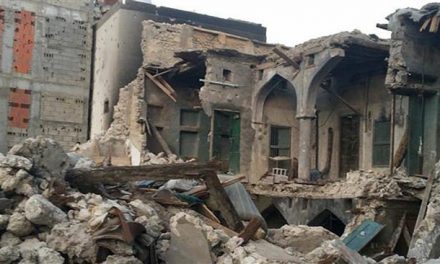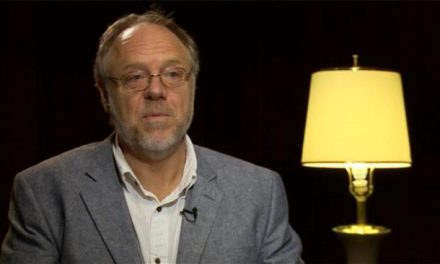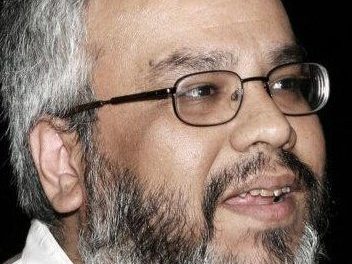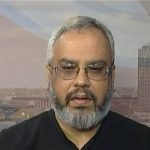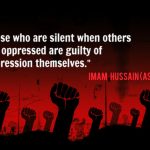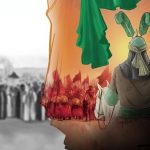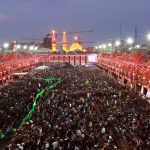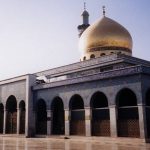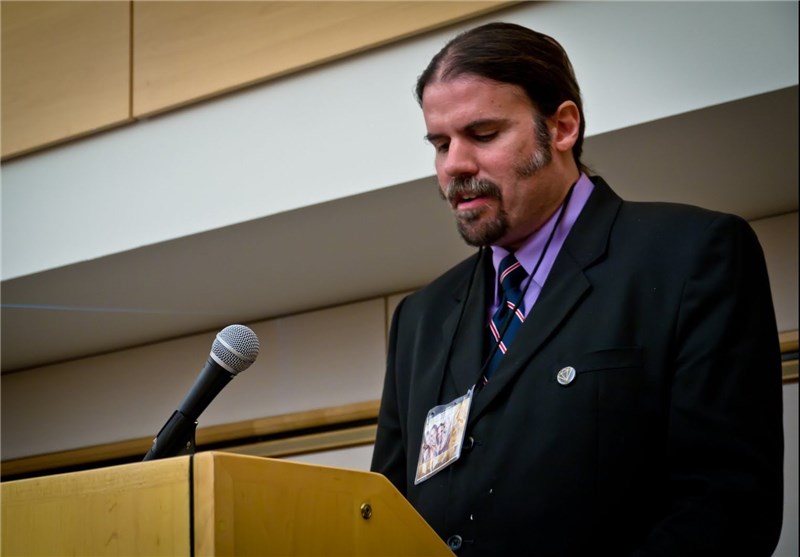
An American political analyst has said that “the rejection of the position of the holy men undermines the structure of religious authority in general, which in turn allows extremist sects promoting twisted interpretations of Islam to proliferate.”
“The Wahhabi theological framework is such that Shia are considered to be heretics, and in the eyes of Wahhabi clerics this justifies repression against the Shia,” Keith Preston, the chief editor and director of attackthesystem.com, said in an interview with Shia Followers.
Here’s the full transcript of the interview:
Amnesty International recently urged Saudi authorities to halt imminent execution of 14 young Shia activists who were condemned to death for taking part in anti-regime protests gripping the kingdom’s Eastern Province. Is this part of the kingdom’s genocide against its Shia minority?
Keith Preston: The planned executions of these 14 men are intended for the purpose of intimidating and threatening critics of the Saudi regime into silence. The Saudis are committing genocide against the country’s Shia population in the Eastern province, and in the Saudi war of aggression in Yemen. These 14 activists were involved in protests against these policies that are being carried out by the regime, and government controlled by the House of Saud is seeking to ensure that more protests of these kinds do not happen. The ambition of the regime is to not only intimidate its opponents into silence, but to obscure the genocide of the Shia that is taking place by threatening those who would speak out against it.
What’s your take on the living condition of Shia Muslims in Saudi Arabia and how it changed in recent years, especially since the rise of Crown Prince Mohammed Bin Salman to power?
Keith Preston: Mohammed Bin Salman has posed as a reformer by implementing surface level social and economic changes in Saudi Arabia in order to win the favor of Saudi Arabia’s Western benefactors, and bring Saudi Arabia more in line with the Western neo-liberal economic model. However, Mohammed Bin Salman has also assumed an increasingly militaristic stance against both Iran and Yemen, and escalated the attacks on the domestic Shia population of Saudi Arabia. Mohammed Bin Salman is attempting to present himself to the West as a liberal reformer. He is doing this as a means of masking the aggression and genocide that is being carried about by Saudi Arabia in Yemen, and against Saudi Arabia’s own Shia minority. The conditions of the Shia in Saudi Arabia have deteriorated significantly in recent years, and have continued to do so as Mohammed Bin Salman has come to power, just as the conditions in Yemen have also continued to deteriorate.
How does the kingdom’s Wahhabi ideology affect its conduct toward Shias in other countries such as Yemen and Bahrain?
Keith Preston: The Wahhabi ideology is used by the Saudi regime as a means of repressing opposition to the regime and its policies, attempting to justify the persecution of the country’s religious minorities, and cultivating support for Saudi-backed terrorist organizations in the region. The Wahhabi clerics that are supported by the Saudi regime regard the Shia as heretics, and therefore deserving of repression, persecution and even death. Therefore, the Wahhabi ideology provides a very convenient cover for the aggression of Saudi Arabia against Shia people in not only Saudi Arabia itself, but also in other nations in the region such as Yemen and Bahrain. The Saudis also attack the Shia in order to attempt to undermine the influence of Iran in the region because Iran is the most significant regional opposition to efforts by Saudi Arabia to achieve hegemony over the Middle East.
Followers of the Wahhabism believe that Muslims who seek intercession from holy men, such as the imams revered by Shias, are not “true” Muslims. What are the consequences of such belief within the Muslim world?
Keith Preston: Three primary consequences can be identified that result from this belief. First, the Wahhabi theological framework is such that Shia are considered to be heretics, and in the eyes of Wahhabi clerics this justifies repression against the Shia. The clerics teach this perspective to their followers who are then motivated to act aggressively and violently against Shia people. For example, members of the Saudi military and police who are carrying out repression and genocide against the Shia are often indoctrinated with this aspect of the Wahhabi ideology as are members of terrorist organizations that are supported by the Saudi regime. The second consequence is that the rejection of the position of the holy men undermines the structure of religious authority in general, which in turn allows extremist sects promoting twisted interpretations of Islam to proliferate. The Christians have a comparable problem within the Protestant tradition, which similarly rejects priestly intercession of the kind practiced by Catholics, and which contributes to the proliferation of cultic extremism in similar ways. The third consequence is that Wahhabi extremists have been able to use this belief to incite hostility toward Iran, which is a predominantly Shia country, thereby inflaming anti-Iranian sentiment in the Persian Gulf region while inciting hatred toward Shia minorities.
Keith Preston was born in Lynchburg, Virginia, United States. He received degrees in Religious Studies, History, and Sociology from Virginia Commonwealth University. He is the founder and director of American Revolutionary Vanguard and the chief editor of AttacktheSystem.Com. He has also been a contributor to LewRockwell.Com, Antiwar.Com, Anti-State.Com,Taki’s Magazine, Radix Journal, and AlternativeRight.Com . He is the author of six books, and was awarded the 2008 Chris R. Tame Memorial Prize by the United Kingdom’s Libertarian Alliance. Keith has been a featured speaker at conferences of the National Policy Institute, H. L. Mencken Club, and Anarchapulco. He has been interviewed on numerous radio programs and internet broadcasts, and appeared as a guest analyst on Russia Today, Press TV and the BBC.

